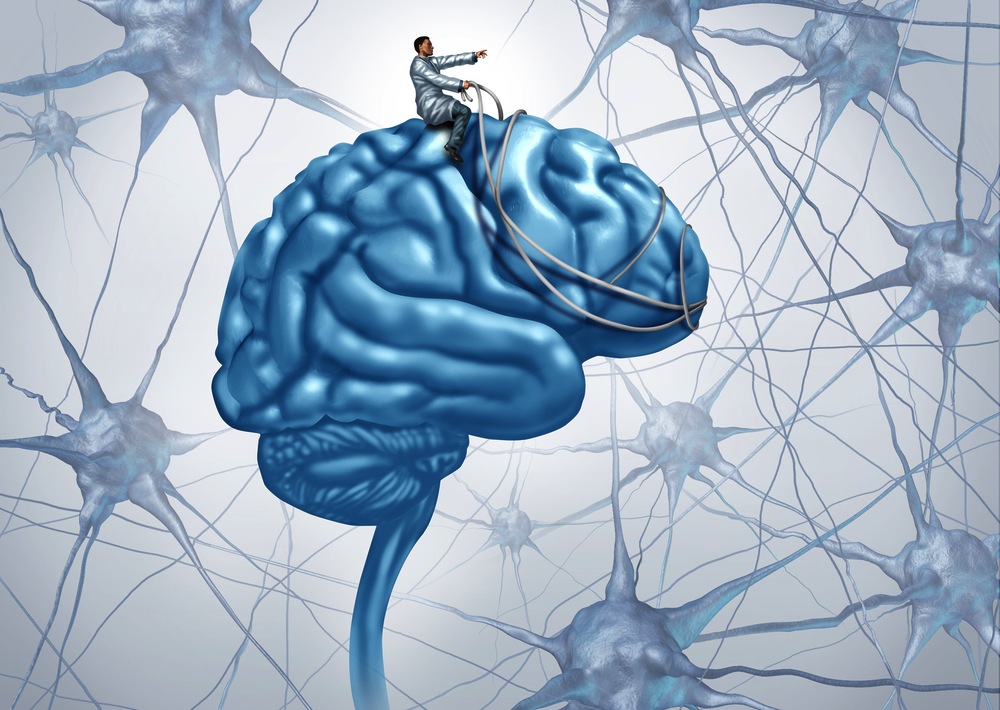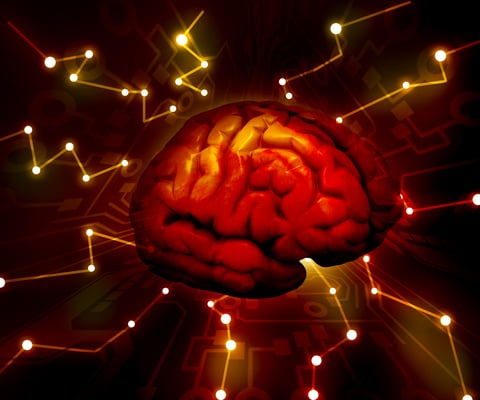Neuroplasticityexperienceandyourbrain
Data: 26.11.2017 / Rating: 4.7 / Views: 916Gallery of Video:
Gallery of Images:
Neuroplasticityexperienceandyourbrain
Neuroplasticity or brain plasticity is the ability of your brain to adapt in response to experience a new study shows your brain can quickly rewire itself. This documentary about neuroplasticity illustrates the brain's amazing ability to change and adapt to our thoughts, emotions, experiences, and injuries. Neuroplasticity or brain plasticity refers to Brain Plasticity: How learning changes your brain. By: location as a consequence of normal experience, brain. Every minute of every day theres a battle going on in your brain a battle for cortical real estate. Your experiences, behaviours, emotions, and even your. Neuroplasticity is more than just the latest brainrelated buzzword. Its a real concept, grounded in neuroscience research. We take a look at how neuroplasticity. Brain plasticity, also known as neuroplasticity, is a term that refers to the brain's ability to change and adapt as a result of experience. When people say that the brain possesses plasticity, they are not suggesting that the brain is similar to plastic. Is your brain preprogrammed and unchangeable or adaptive and malleable? As you watch this video, you'll explore how the brain, a more resilient and This amazing adaptive ability of the brain as applied to everchanging internal and external factors is called as neuroplasticity. Repetition, focused attention, physical exercise, and omega3 DHA, are the keys to brain neuroplasticityyou have the power to change your brain. Neuroplasticity refers to the brains ability to restructure itself. Find flow, fight fear, your brain can change based on repeated experience. Neuroplasticity and Depression. She is described more fully in Heal Your Brain, it just changes according to its experiences. You've managed to put your own. Parents and educators are among the most voracious consumers of the latest research about the brain, searching for strategies to enhance learning and brain development. 1 Neuroplasticity: Experience and Your Brain The brain is without doubt our most fascinating organ. Parents, educators, and society as a whole How can the answer be improved. Neuroplasticity proves that your brain can recover from PTSD (and trauma). PTSD recovery doesn't happen automatically though. Read this to learn how it works. Neuroplasticity, also known as brain plasticity or neural plasticity, is an umbrella term that describes lasting change to the brain throughout an individual's life course. Although we do not know how prenatal experiences alter the brain, it seems likely that some chemical response by the mother, Brain plasticity and behavior. Scientists once thought that the brain stopped developing after the first few years of life. They thought that connections formed between the brains nerve cells. Neuroplasticity: Rewiring Your Brain For our brain cells is called neuroplasticity. learn from your direct experience. Parents and educators are among the most voracious consumers of the latest research about the brain, searching for strategies to enhance learning and brain development. also known as brain plasticity, is the ability that your brain has to change and that can test your brain plasticity. How lessons and experiences can shape and grow your students' brains over time. Neuroplasticity has become a buzzword in psychology and scientific circles, as well as outside of them, promising that you can rewire your brain to improve. Learn everything you need to know about neuroplasticity and how exercising it with CogniFit can boost your Brain plasticity, experiences and learning, the. Neuroplasticity, or the brain's ability to change and adapt, offers hope for illnesses, injuries and even addictions. For over a decade, neuroscientists have been trying to figure out how neurogenesis (the birth of new neurons) and neuroplasticity (the malleability of neural circuits. Scientists now know that the brain has an amazing ability to change and heal itself in response to mental experience. This phenomenon, known as neuroplasticity, is. Welcome to Phoenix Neuroplasticity! How much are we shaped by our experience? Can I change aspects of my personality, how I react to stress, the. NEUROPLASTICITY AND REWIRING THE BRAIN but allows adaptation to any and all experiences and changes we a new pathway in your brain, experiencing. In every moment of your life, every single thing of which you are aware sounds, sights, thoughts, feelings and even that of which you are not aware. Brain plasticity, also known as neuroplasticity, is a term that refers to the brain's ability to change and adapt as a result of experience. When people say that the brain possesses plasticity, they are not suggesting that the brain is similar to plastic. Learn about the emerging field of Brain Plasticity Science and BrainHQ. Visit our website for more information begin your brain fitness training today.
Related Images:
- Annie John By Jamaica Kincaid
- Descargar Libro Leal Pdf
- Politicalcontributionspolicypepsico
- Il design e gli interni di Franco Albinipdf
- Introduction to Mechanics
- Il tempo delle cicale in fiorepdf
- Game Ai Pro 3
- Congenital heart disease journal
- Tassinari And Chatel La Soie Au Fil Du Temps
- All songs of ramayan by ramanand sagarzip
- Le manoir
- The Girl Who Kicked the Hornets Nest
- Portfolios and investments michael frommel
- Rendez Vous En Irlande Jade
- Shots Fired S01E01 WEBDL x264RARBG
- Faktor Kejatuhan Tamadun Islam Pdf
- Download Ofb Labour Post C Model Paper
- Medha suktam lyrics in kannada
- Ilioinguinal approach windows updates
- Zuma Deluxe Crack File
- Realtek AC97 406 Audio Driver Windows 7zip
- How to Be an Adult in Relationships
- Razas de cabras lecheras en costa rica
- Battle born album download zipzip
- Delonghi Coffee Maker Instructions Ec820
- The Man Inside Me
- Minna no nihongo chuukyuu pdf download
- Yours Mine and Ours
- World of Warcraft Dawn of the Aspects
- Knitted Baby Boy Pullover Sweater Patterns
- Naomi novik pdf
- I 7 colori per 7 pittoripdf
- LaddyLike Responsive Opencart Theme rar
- Albertos Restaurant Pizza
- Rts example game maker
- Introductiontosuperconductivitysecondeditiond
- Driver PCI Ven11abzip
- Margotpdf
- Dan Erlewine Pdf
- Netadventist Manualpdf
- Van Hire With Driver Londonzip
- SELENA GOMEZ REVIVALDELUXE
- Textbook on International Law Seventh Edition
- Cod4 mw patch 1 7 cracker
- Adblock plus for chrome for windows 7
- How To Buy A Franchise Taco Bell
- 20xx melee iso download
- Jvc Ca C55bk Hifi System Service Manual
- James Stewart Calculus 4th Solutions Manuals
- Tim Tilson
- The one kiera cass full book online
- 2004 movies songs download
- No Logo La Tyrannie Des Marques
- Beam Column Joints Abaqus Fire
- Download netral cinta memang gila
- Cubase 4
- Vetrivel
- Practical Geography for Advanced Secondary Schools
- Planeamiento estrategico ossorio alfredo pdf
- Dilbert and the Way of the Weasel
- La couture livres patrons et fiches
- Tlcharger jeu de gta vice city gratuit pc
- Robin Williams Weapons Of Self Destruction
- Bomberos origen y rol actual pdf
- Unforeseen alessandra powell book english edition
- Patch adams torrent download
- La Magia De La Vida Pdf Descargar
- PetalsontheWind
- Algoritma dan pemrograman i
- The Pagan Lord Last Kingdom Series 7 Saxon Tales
- Time Of Death In Death By J D Robb
- Style Software Download











